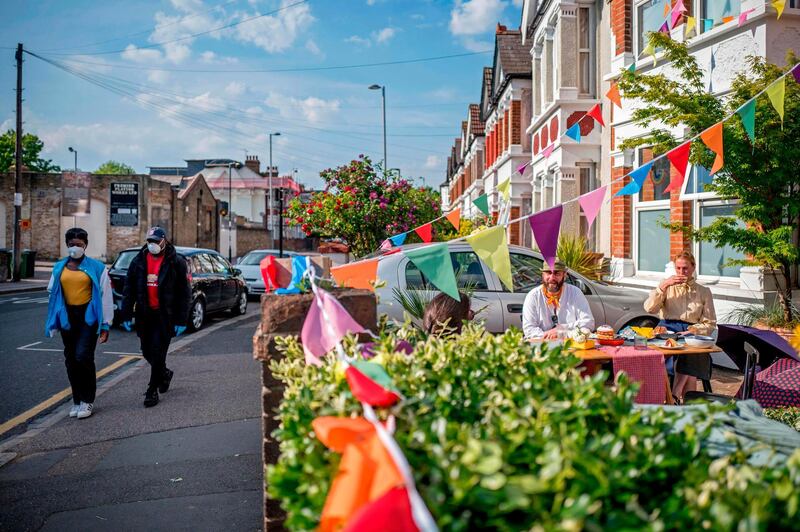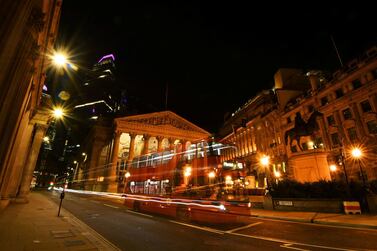The Brexit game of chicken is back with a vengeance after the coronavirus crisis destroyed any hope of securing a trade agreement in 2020.
In a game of nerves between the two drivers faced with an oncoming cliff edge there are only three options: brake early and lose; allow your rival to go over the edge or fly off into oblivion together.
As far as the trade negotiations are concerned all three options represent failure for the British or the Europeans or both.
First some facts. Britain left the European Union on January 31. But an 11 month transition kept a frozen relationship until the end of this year.
A free trade deal to minimise future barriers should be thrashed out in months. If nothing else an existing pact, like the Canada Free Trade Agreement, could be hastily upgraded for the UK.
Coronavirus hit Europe as Brexit happened. The impact of the pandemic has shattered hopes that the last piece of the jigsaw could be put in place.
So within a matter of weeks it will be clear that going over the cliff edge is inevitable.
This could be a force majeure moment in which all sides decide on an extension. Most of the negotiators on the EU and the British side contracted Covid-19.
The substance of the trade relationship has not been discussed. Involvement of parliaments or interest groups has been hampered by the shutdown.
Countries in the worst-hit continent are grappling on multiple fronts with coronavirus. The bandwidth for political decision making is almost nonexistent outside of the health and economic crisis.
The economic backdrop is appalling. The governor of the Bank of England Andrew Bailey told reporters last week that the economy would shrink about 30 per cent in the first half of 2020.
European governments and its central bank are spending the equivalent of 22 per cent of gross domestic product just to keep this year's hit to their economies in single digits.
The global impact is thought to be a cut of at least a 10 per cent in global imports.
In this situation surely there is no danger that any country would risk a further blow to its trade regime.
British political reality dictates that the country will walk away, possibly as soon as June when a review of the talks process is due.
Prime Minister Boris Johnson, who is recovering from a near-fatal fight with Covid-19, is battling within his party to hold the line on maintaining the Covid-19 lockdown.
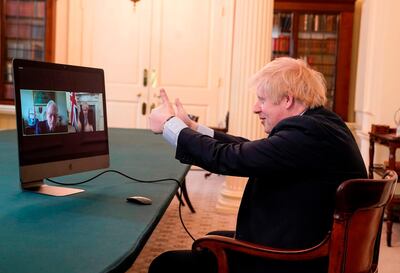
A clamour with the Conservatives seeks to staunch the red lines coursing through the economy.
His ability to take a party that won the most convincing electoral victory for 18 years to drop its cherished Brexit is beyond even Mr Johnson.
Not that he shows any sign that he would do it if he could.
The coronavirus has exposed the unattractive propositions within the EU negotiating demands.
Brussels is asking Britain to sign up to non-regression rules that would mean acceptance of its regulations far into the future.
This cripples the UK’s ability to make trade deals with other countries.
It also seeking rules on data that would leave London as a rule taker in the digital economy.
VE Day celebrated quietly amid pandemic

As an example of how out of step the EU position has become given the current crisis, the negotiators are insisting that Britain follows its state aid rules.
That means that in a crisis the UK could not bailout its biggest airline until it had a waiver from the EU.
Germany has spent 10 billion euros shoring up Lufthansa. Britain has not yet bankrolled British Airways or Virgin Atlantic.
Yet the EU trade position is that it should sign up to rules designed to stop British interventionism.
Climate change is another area of dispute. The EU is laying down emissions and carbon emissions rules as the basis of its future free trade agreements.
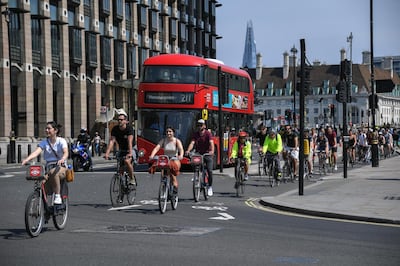
These demands not only affect the UK but also, according to Malcolm Turnbull, the former Australian prime minister, friendly nations in a different hemisphere.
Never mind that British domestic law stipulates that the country is carbon neutral by 2050.
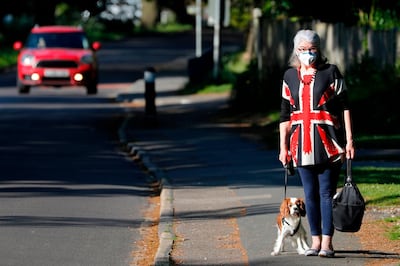
Borders are going up around Europe. One by one countries have closed off the Schengen pact that allows free movement. Resentment within the eurozone between the rich north and the struggling states is a pressure cooker with the dial on red.
All of these factors are fully in the open as a result of the sudden stop triggered by the coronavirus.
A sovereigntist government led by Mr Johnson has had its red line fully exposed and made clear in the crisis.
For that reason, London will walk when the moment of truth comes.
Damien McElroy is the London bureau chief of The National
